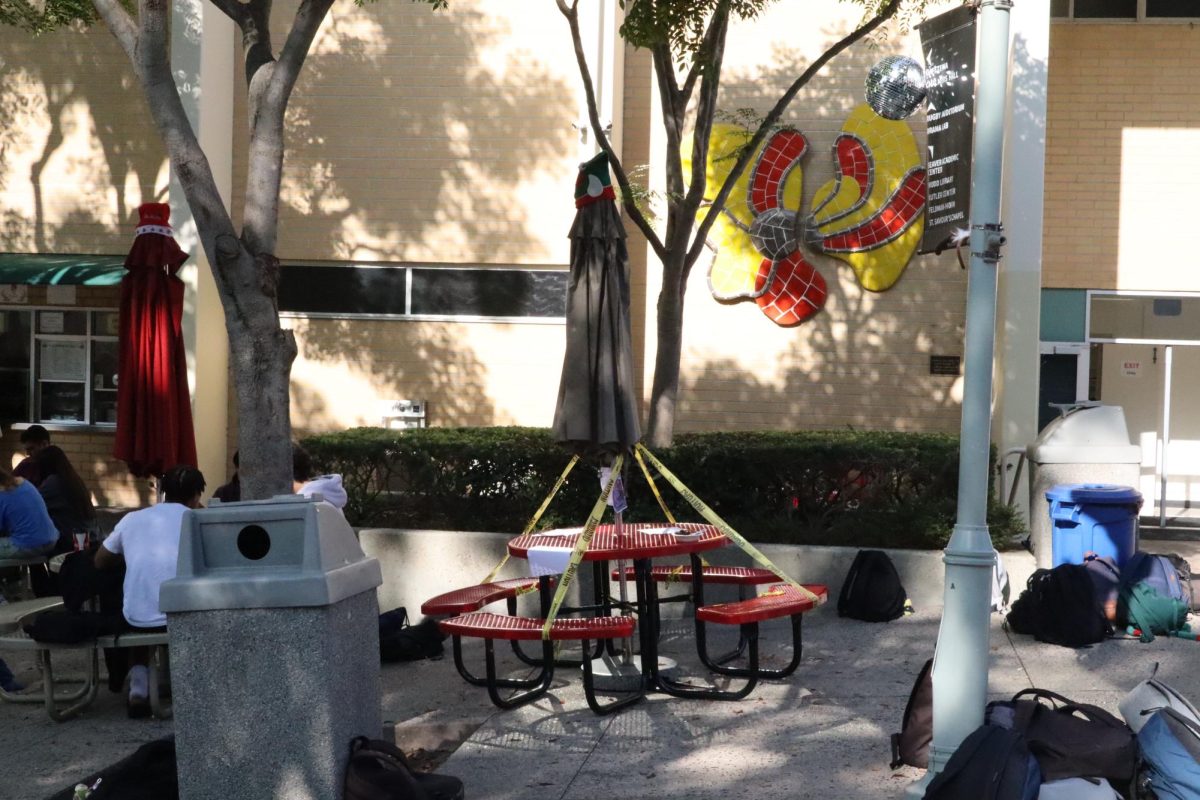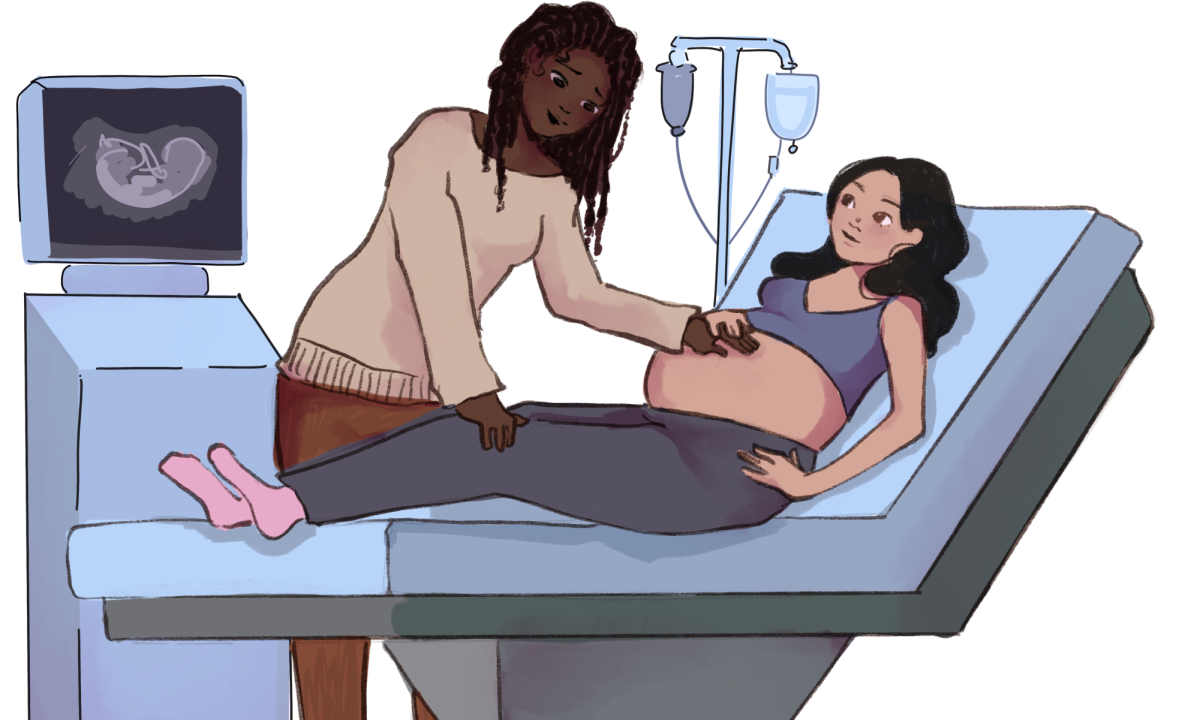17 years ago, Dwana Willis (Gian ’26) tapped her foot impatiently as a three-minute timer ticked down beside her. She held her breath as she squinted at the pregnancy test in her hands. After seeing the two faint pink lines revealed, Willis felt elated. A wave of relief washed over her; she finally felt optimistic about her ability to bring a child into the world. After a long and costly journey of finding a sperm donor, multiple doctors and several failed intrauterine inseminations (IUIs), Willis had become pregnant through in-vitro fertilization (IVF).
Willis said her successful IVF procedure reassured her after her tumultuous fertility journey.
“Once I knew that I was pregnant, [I felt] an overwhelming sense of joy,” Willis said. “[After] having so many failed IUIs, the inability to get pregnant was really kind of concerning. I went into a depression, and it felt like I wasn’t a woman. I wasn’t enough.”
IVF is a series of medical procedures in which eggs are collected from the ovaries and fertilized with sperm outside the body in a laboratory setting, according to Mayo Clinic. The eggs and sperm can be collected from the person attempting to conceive or obtained through donors. The fertilized eggs are then transferred to the uterus, where the fetus develops. The procedure is commonly used by same-sex or single parent families as well as people with fertility issues or genetic disorders. Around 2% of babies born in the United States (U.S.) are conceived through IVF, according to CNN.
Los Angeles obstetrician gynecologist (OB-GYN) Howie Mandel said fertility treatment and reproductive care allows families to conceive and give birth to biological children they would not be able to have otherwise.
“I have seen hundreds and hundreds of families built thanks to assisted reproduction,” Mandel said. “Obstetrics and gynecology is one of the most rewarding fields in medicine. OB-GYNs see new life on a regular basis.”
Willis said IVF provided her and her wife the opportunity to have children as a same-sex couple.
“As a same-sex couple, one of the jokes I make is that we both have really low sperm count,” Willis said. “With that being the case, we would be unable to have the joy of having children [without IVF].”
This September, Republican Senators blocked the Right to IVF Act for the second time. The bill aimed to require cost coverage for infertility treatment in large group health care plans, according to NPR News. In response to legislation against IVF, Governor of California Gavin Newsom signed legislation requiring large group health care service plan contracts and disability insurance policies to provide coverage for the diagnosis and treatment of infertility on Sept. 29, according to USA Today.
Willis said the affordability and accessibility of IVF treatments is important for not only same-sex couples, but also heterosexual couples.
“[IVF] needs to be accessible to any and everybody that wants to have children,” Willis said. “Infertility and being unable to conceive is also an issue with heterosexual couples. If the woman is unable to either produce enough eggs, or there’s something going on internally that prohibits her from being able to get pregnant, then that’s an issue. People also always forget that the man could very well have a very low sperm count, and he could be the issue.”
Although IVF usage by LGBTQ+ couples has increased in recent years, heterosexual couples still account for over 90 % of IVF patients, according to the Human Fertilization and Embryology Authority. The heterosexual parents of Shimon Schlessinger ’26 chose to have him and his twin brother through IVF because of fertility issues. Schlessinger said IVF is important because it allows people to have children when they feel ready for it.
“My parents wanted to have children, and when my mom was getting pregnant with me and my twin brother, she was in her mid forties,” Schlessinger said. “It wasn’t a very viable option for them to have us naturally, so they decided to do IVF. There shouldn’t be a rush to have children early if you’re not ready for it. Extending the time frame that women are able to have children [in] and giving more people the opportunity to start a family is an important benefit to IVF.”
Nationwide, the average cost for IVF treatment ranges from $14,000-20,000, according to the Pacific Fertility Center of Los Angeles. Mandel said IVF treatment is expensive due to the extensive procedures, training and equipment required.
“I don’t think that IVF is ‘so expensive’ considering what has to be done,” Mandel said. “Consider the years of training of the reproductive endocrinologist. Four years of college, four years of medical school, four years of OB-GYN residency and three years of a fellowship in reproductive endocrinology and infertility. The nurses, the anesthesiologist, the laboratory embryologist, supplies, sterile equipment and numerous hormonal medications all have associated costs. Even though [they are] not inexpensive, the costs are very reasonable [when you] recognize these specialists are assisting families in reproduction [and] creating new life.”
Willis said IVF can be a financial burden for couples without substantial healthcare coverage or savings.
“It’s not a cheap process,” Willis said. “At the time, one vial of sperm was like 400 bucks, and we needed more than one. That does not include the cost of keeping it stored, [or] the cost of the medical procedure. On some levels, it could be prohibitive for a family who doesn’t have either medical insurance and or the finances to even be able to have children.”
Willis’s son, Gian Ngo-Willis ’26 is half Black and half Asian. He said while adoption is a great option for many LGBTQ+ couples, one of the reasons his parents chose IVF is because they felt it was important to have a child who reflected their unique ethnicities and culture.
“It’s important to have access to IVF because of LGBTQ+ relationships,” Ngo-Willis said. “If there is no IVF, there is no opportunity for people in those situations to have a child. [My parents] specifically wanted to pursue IVF because they wanted a more accurate representation ethnically and culturally of themselves. They also wanted that added factor of having their children be a part of them. IVF accessibility is important for all people, but there’s an underlying tone of equality for LGBTQ+ couples.”
Reproductive rights have become an issue since Roe v. Wade, a Supreme Court case protecting a woman’s rights to an abortion, was overturned in the 2022 case Dobbs v. Jackson Women’s Health Organization. Since then, 13 states passed legislation criminalizing abortion at all stages of pregnancy, nine of which do not have exceptions for rape or incest, according to CNN. Despite this, 63 % of Americans believe abortion should be legal in all or most cases, according to Pew Research Center. While presidential candidates Donald Trump and Kamala Harris have differing views on abortion, both have announced plans to require healthcare coverage for IVF nationwide, according to CBS News.
Mandel said the upcoming election will not play a significant role in the cost or accessibility of IVF in most states.
“I do not believe the upcoming election is important regarding IVF affordability,” Mandel said. “As for accessibility, [it is important ] in very few states but not in California. I do think the election is very important regarding the role of government in people’s lives. There are significant differences in how the two major political parties address people’s reproductive rights and choices people make about their bodies.”
Although he was conceived in a different way than the majority of his peers, Ngo-Willis said he does not see himself differently than them.
“I have never once thought of myself differently from other people,” Ngo-Willis said. “The fact that I have two moms or that I was made through IVF barely ever crosses my mind. My parents were always very upfront with me that our family wasn’t stereotypically normal, but I never thought of myself as different.”




























